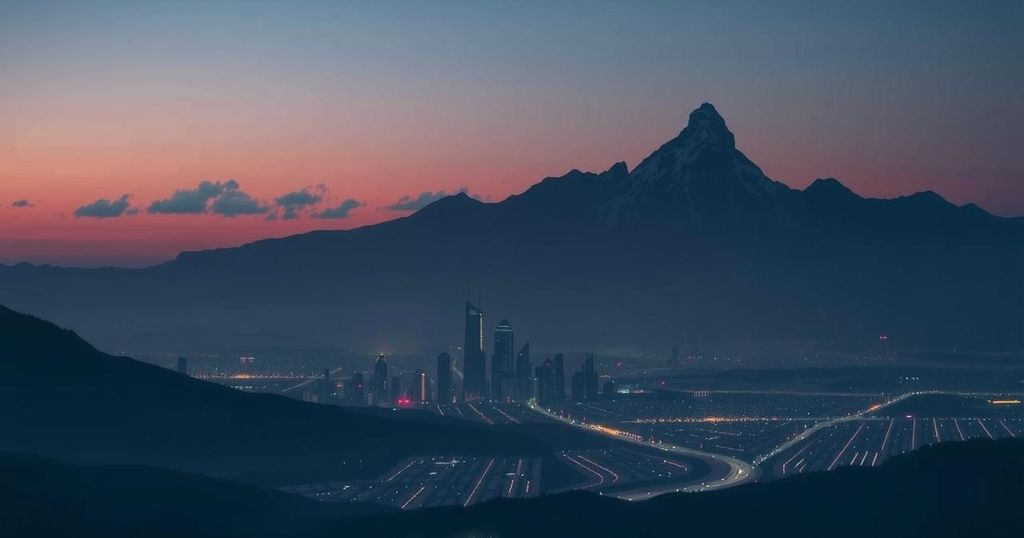M23 rebels have claimed control of Goma, leading to mass panic among its residents. Congolese authorities denounce the advance as a declaration of war amid accusations of Rwandan support for the rebels. The humanitarian situation is deteriorating, with rising displacement and violence prompting international calls for a ceasefire.
Rwanda-backed M23 rebels have reportedly seized control of Goma, eastern Congo’s largest city, triggering widespread panic among its 2 million residents. The rebels made this declaration as a deadline for the Congolese army to surrender expired. In their statement, they urged Goma’s inhabitants to remain calm and called for Congolese military personnel to gather at the central stadium. This military advance threatens to exacerbate an already dire humanitarian crisis in a region plagued by displacement and violence.
The United Nations reported that a third of North Kivu province’s population is currently displaced, and the M23’s control over Goma would likely worsen this situation. UN peacekeepers were observed processing the surrender of Congolese soldiers near Goma as government officials warned of an escalated war situation. As the crisis unfolds, Goma’s airport and key roads have been shut down, leaving many civilians trapped in a humanitarian and security crisis.
Congolese officials reacted by severing diplomatic ties with Rwanda, which they accuse of supporting the M23 rebels. Amid increasing violence, over a dozen peacekeepers have been killed this past week, escalating tensions further. International appeals for a ceasefire have emerged, while the UN Secretary-General condemned the M23 offensive, demanding an immediate cessation of hostilities.
Goma has faced intense combat, with residents fleeing towards the Rwandan border in fear of escalating violence. Displaced civilians voiced concerns about the safety of Goma, expressing uncertainty regarding where to seek refuge. Reports indicate that the military, bolstered by allied forces, is attempting to repel the M23 advance amid a rapidly deteriorating situation that threatens to compound the humanitarian crisis.
The evolving conflict in eastern Congo, entwined with historical tensions involving Rwanda, showcases the complex dynamics that perpetuate instability in the region. Despite negotiated attempts for peace, ongoing military engagement from the M23 and their allegations against Rwanda highlight a critical state of affairs that demands urgent international attention and resolution.
The conflict in eastern Congo is one of Africa’s longest-standing crises, deeply rooted in ethnic tensions and territorial disputes. The M23 rebel group, primarily composed of ethnic Tutsis, has repeatedly engaged in armed conflict against the Congolese government, often with allegations of foreign backing, particularly from Rwanda. Goma, a strategically important city due to its mineral wealth, has been a focal point for these conflicts and serves as both a humanitarian hub and a battleground. This latest surge in violence following the M23’s control emphasizes the alarming humanitarian consequences, including mass displacements, threats to civilian safety, and strained international relations as nations like Rwanda face accusations of violating sovereignty. The situation is further complicated as peacekeeping efforts struggle to address the urgent needs of the affected populations.
In summary, the capture of Goma by M23 rebels heralds a significant escalation in an already tumultuous conflict in eastern Congo. With civilians experiencing mass panic and the humanitarian situation deteriorating, the international community must act promptly to avert a deeper crisis. The challenges of a fractured region, characterized by armed groups and foreign influence, necessitate collaborative and effective strategies to restore peace and security for the millions affected by this ongoing war.
Original Source: www.newspressnow.com






